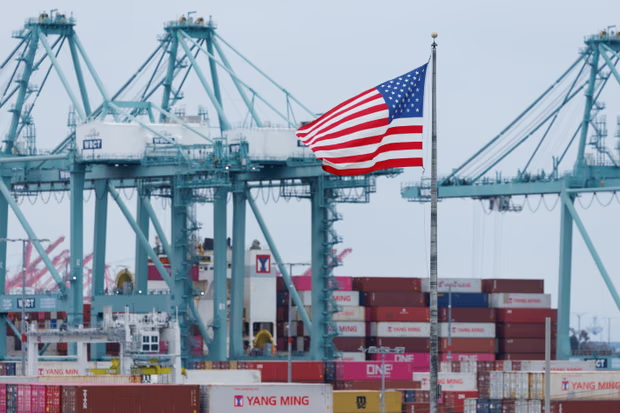Here’s the latest on the high-stakes legal showdown over Trump’s sweeping tariffs, currently under scrutiny in a federal appeals court — just hours before a new round of duties was set to take effect:
⚖️ What’s happening in court
- On July 31, 2025, an 11‑judge panel of the U.S. Court of Appeals for the Federal Circuit heard oral arguments in the consolidated case V.O.S. Selections, Inc. v. Trump, challenging Trump’s authority to unilaterally impose global tariffs under the International Emergency Economic Powers Act (IEEPA) (AP News).
- Judges delivered pointed skepticism, noting IEEPA never mentions tariffs, and questioned whether economic concerns like trade deficits or fentanyl smuggling qualify as “unusual and extraordinary threats” warranting emergency powers (The Guardian).
- The government’s attorney, Brett Shumate, acknowledged that no president has previously used IEEPA to justify tariffs but insisted it’s legally defensible under broader emergency powers (AP News).
🧾 Legal background
- A lower court, the U.S. Court of International Trade, ruled on May 28, 2025, that the so‑called “Liberation Day” tariffs—enacted via executive order on April 2—were unconstitutional and exceeded presidential authority. That ruling has been stayed while the appeal proceeds (Wikipedia).
- The case raises broader constitutional questions: opponents argue Trump’s interpretation violates the nondelegation doctrine, improperly shifting Congress’s tariff authority to the executive branch without clear legislative guidance or limitation (Wikipedia).
- The outcome is expected to influence whether hundreds of billions in tariffs paid by importers might be invalidated or refunded (The Australian).
⏳ Timing & consequences
- Trump had planned to implement a new wave of import tariffs on August 1, but that deadline was abruptly pushed to August 7, adding uncertainty for markets and businesses (AP News).
- If the appeals court sides with the challengers, the case is almost certain to escalate to the U.S. Supreme Court, where it could redefine the scope of executive power in trade policy (AP News, The Wall Street Journal, The Times of India).
🔎 Key implications
| Issue | Why It Matters |
|---|---|
| Executive vs. Congress | Could limit presidential power in economic emergencies. |
| Trade policy stability | Uncertainty over whether tariffs will remain in force or be reversed. |
| Economic impact | Tariffs raise prices, could spur inflation or economic disruptions. |
In summary: judges expressed deep concern that Trump’s use of IEEPA to impose expansive tariffs stretches beyond constitutional and statutory intent. Their doubts center on the absence of specific authority in the law and whether routine trade issues qualify as emergencies. A ruling for the plaintiffs could reshape the balance of trade powers in the U.S. government.
Would you like to explore how different industries would be affected—or breakdown which countries and goods are involved?
